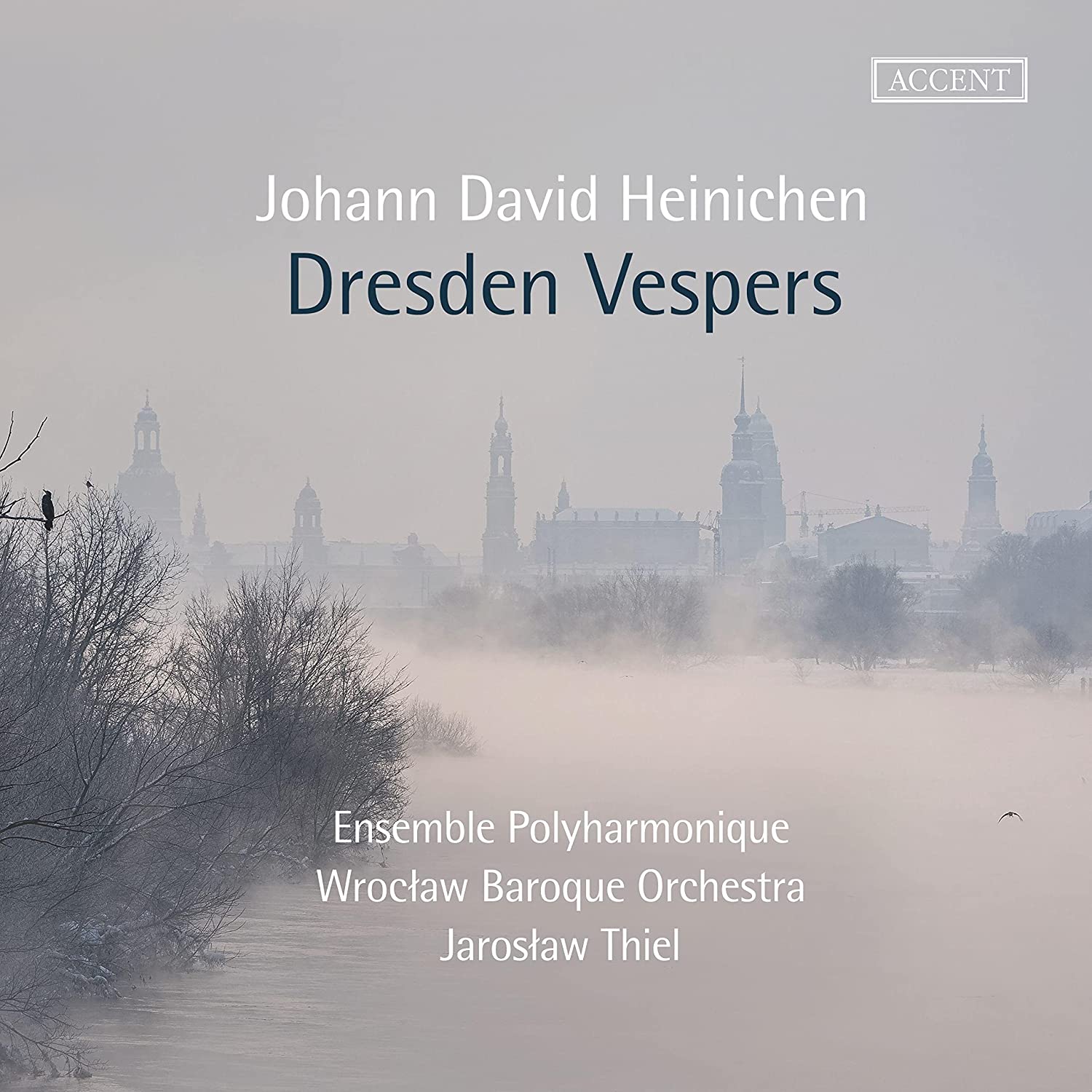Ensemble Polyharmonique, Wrocław Baroque Orchestra, Jarosław Thiel
67:31
Accent ACC 24381
Click HERE to buy this recording on amazon.co.uk
[These sponsored links are the only means of support we have]
The announcement of this recording was a bittersweet thing for me. After many excellent renditions of his orchestral music, fine performances of his masses, and – relatively recently – a fantastic account (albeit with many, many cuts) of his opera “Flavio Crispo”, the chance to hear some of his Vesper music with minimal forces promised to be something of a revelation. On the other hand, with my Fasch scholar’s cap on, would Heinichen manage to overcome his reputation as the man who butchered Fasch’s music for Vespers (and, it must be said, for mass!) to such an extent that it is virtually impossible to establish the original version with absolute certainty? The answer is, of course, a resounding “Yes!” These performances of music for the celebration of the Jesuit St Francis Xavier from the early 1720s is a celebration of his many talents as a composer and also of the performers’ commitment to it. Eight singers and 44321 strings with oboes, bassoon and continuo bring the five contrasting psalms to life, as well as a magnificat and the appropriate hymn and Marian antiphon, as micht have been heard on the feast itself, and finish the programme off with the longest piece in the programme, Heinichen’s first setting of a Litany for the Saint, which was probably heard throughout the week-long celebration. Three of the psalms are through-composed with each phrase of text given a its own musical theme, while Dixit Dominus, Laudate pueri and the Magnificat are subdivided with a variety of arias for the soloists. The hymn setting is in older-sounding Fux-like counterpoint. The singing is radiant (the tutti sound ravishing!), and the playing is by turns incisive and beautifully supportive of the voices. If – as Gerhard Poppe’s essay states – Heinichen found himself unexpectedly appointed as director of the Dresden court’s Catholic Chapel, it is clear that he embraced the position with both hands; there is some truly impressive music here – don’t miss it!
Brian Clark
